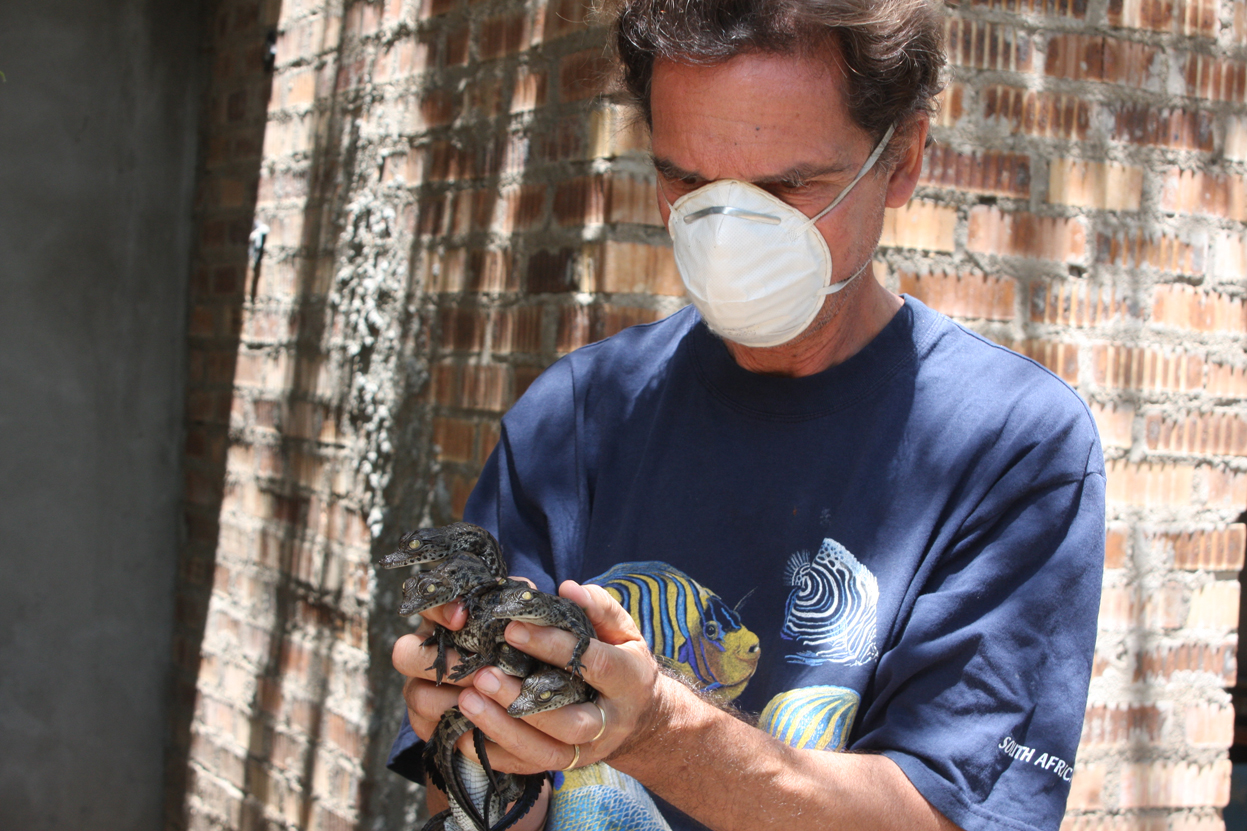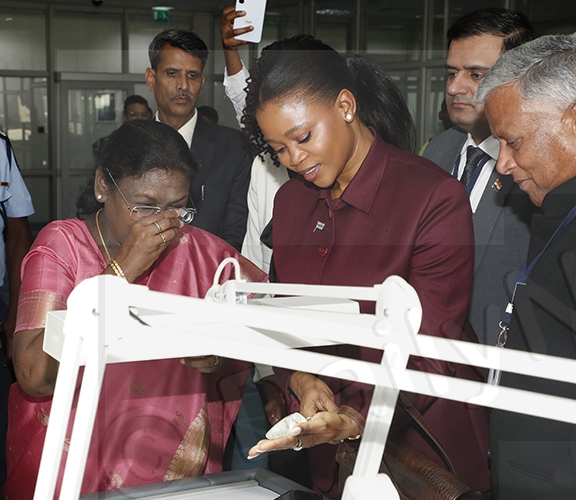Douma farm transforms aquaculture sector
12 Jan 2021
People voyage the world attracted by what other places offer, mainly stemming from what they have read or seen on magazines.
City of Paris in France is known for its Eiffel Tower while the Acropolis in Athens, Greece, attracts millions of tourists annually.
Enough about the far away places. Douma Crocodile Farm in Francistown, established in August 2011, is steadily making its name among nature lovers.
Located about 1.6 km away from the Orapa junction along the Maun/ Francistown road, the farm is on a mission to transform the aquaculture sector in Botswana.
The farm, believed to be Francistown’s only crocodile farm and among the few in the country, aims at stimulating investment in the sector by developing emerging agriculture farmers, increasing production, creating job opportunities and promoting the industry’s geographical spread.
Visiting the farm one will find hundreds of crocodiles basking lazily in the sun next to their small dams as testimony to the small but significantly positive steps that the sector has taken to change the face of the lucrative crocodile sector in Botswana.
“Crocodile skins and meat from the enterprise are exported to countries such as China and Italy, and is by no means a small accomplishment,” said the owner and founder of the farm, Mr Willem Douma.
Mr Douma, who is in his 60s, attributed his success to support from Batswana who visit the farm, especially on weekends and holidays such as the festive season.
“I also owe my allegiance to numerous neighbouring farmers who did not only support my application to practice crocodile farming, but also contributed their labour, expertise and material when we built the crocodile dams. With that kind of selflessness and positive attitude of other farmers and assistance from government, locals’ participation in white-dominated industries such as aquaculture will turn into reality,” said Mr Douma.
He began by buying eggs from other commercial farmers and using his incubator to hatch them before taking the baby crocodiles to hot rooms.
At a year old, they are fed until they are old enough for slaughter to harvest their meat and skins for export.
“A crocodile farm or alligator farm is an establishment for breeding and raising of crocodilians in order to produce crocodile and alligator meat, leather from crocodile and alligator skin and other goods. Many species of both alligators and crocodiles are farmed internationally,” he added.
Douma’s Crocodile Farm, now open to the public, has been a great attraction for a family friendly day outings, with crocodiles of all sizes to appreciate.
However, such as any other enterprise or business, Douma Crocodile Farm experienced COVID-19 effects.
“I have also been hit hard by the outbreak of COVID-19 such as any other business,” he added, adding that since the outbreak their income flow reduced to zero because most of their source of income was from tourists, schools, friends and families.
Furthermore, he said since schools were their regular visitors, such social calls were hindered by lockdown, a feat that affected their income flow.
“Usually we were receiving about 70-100 school visits, but during the lockdown period our visits decreased to 10,” he said.
Due to lack of income they had to halt some of the projects such as improvement of the farm and construction of other ponds.
However, Mr Douma said after the lockdown period they started receiving visitors, and in June the visits increased by 30 per cent courtesy of marketing from their neighbours. In July they started receiving normal visitors.
He cited border closures as a setback as it immensely affected their skin exportation, but stated that skins were contributing only 16 per cent of production while the rest of the income were from tourists.
The farmer stated that the economy of the farm was not certain as it was fluctuating, but hoped that after two years it would have recovered.
Despite the COVID-19 crisis, none of his employees were retrenched, adding that employees were only 25 per cent costly.
He noted that it was important that one observed the behaviour of crocodiles so as to protect the lives of both the staff and visitors.
Moreover, he said crocodiles tended to become dangerous if they were not fed on a regular basis, adding that if their schedule of feeding changed they got stressed and became aggressive.
Douma’s Crocodile Farm, which started with only 220 crocodiles from Samochima farms in the Maun area, now prides itself with 1 500 crocodiles with the oldest being 11 years.
Mr Douma said they only breed Nile crocodiles which is the only species found in Botswana, adding that they usually got their crocodiles from Kazungula and Samochima farms.
He said crocodiles were able to eat and digest rotten meat due to the acid in their stomach while small crocodiles prefered fresh meat.
The farmer said besides rearing crocodiles they also breed leopard tortoises while other reptiles such as terrapins, snakes and lizards would join later.
Mr Douma said engaging in the business was not an easy thing, especially when rearing reptiles because they required a lot of work.
BOPA
Source : BOPA
Author : Patience Molatlhegi
Location : FRANCISTOWN
Event : Interview
Date : 12 Jan 2021






